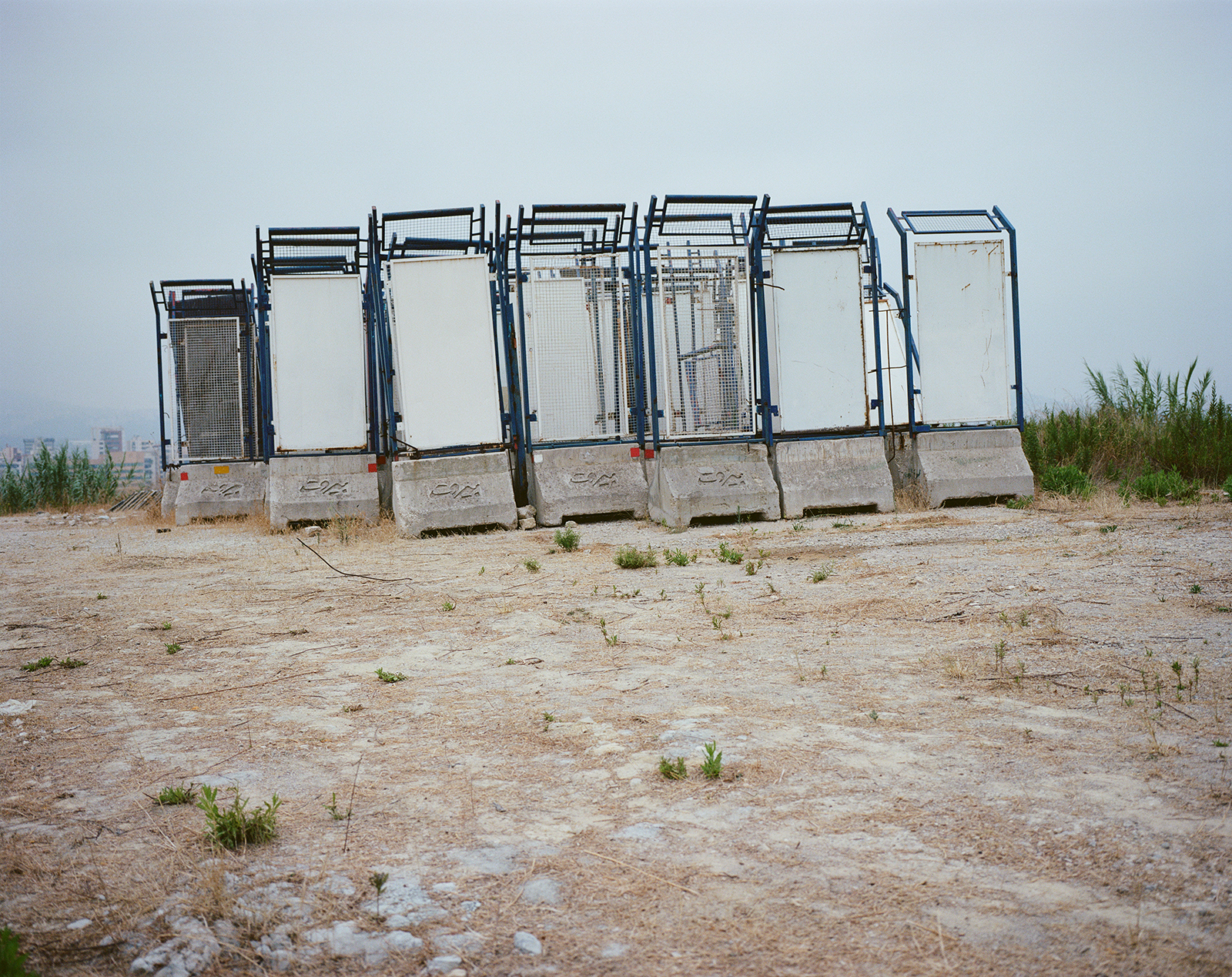
During my first visit to Beirut after the war, I realised that I had never made even one hundred steps on my own in the city where I was born. Walking became subsequently my process to explore the city and a pretext for introspection.
Lors de ma première visite à Beyrouth après la guerre, j'ai réalisé que je n'avais jamais fait cent pas par moi-même dans la ville où je suis né. La marche est devenue par la suite ma démarche pour explorer la ville et un prétexte à l'introspection.
This photography is part of a private collection (40x53cm Hahnemuhle Baryta 315gr paper print)
headland - capo - cap
Beirut, Lebanon.
Under the present Beirut lie at least six other cities buried by wars or calamities ...
Sotto l'attuale Beirut giacciono almeno altri 6 città sepolte da guerre o calamità ...
Sous l'actuelle ville de Beyrouth sont ensevelies au moins six autres, par des guerres ou des catastrophes ...
Beirut, Lebanon.
Under the present Beirut lie at least six other cities buried by wars or calamities ...
Sotto l'attuale Beirut giacciono almeno altri 6 città sepolte da guerre o calamità ...
Sous l'actuelle ville de Beyrouth sont ensevelies au moins six autres, par des guerres ou des catastrophes ...
Je suis née à Beyrouth, mais je l'ai visité quelques fois seulement depuis notre immigration en Grece en 1989.
Même si mon nom est Georges et il est le saint patron de cette ville et son mythe phénicien est si attrayant, j'ai toujours imaginé ma ville natale, depuis que j'ai découvert son corniche, lors d'une de mes premières pérégrinations après la guerre,, comme une figure féminine flottante, se promener par la mer ...
I was born in Beirut but I visited it only few times since our immigration to Greece in 1989.
Even if my name is Georges and he's the saint patron of the city and Its phoenician myth is so appealing, I always envisioned my hometown, since I discovered its cornice, on one of my first peripatetic wanderings after the war, as a floating female figure, walking by the sea ...
Imru al-Qais’s 6th century classical Arabic poem “Let Us Stop and Weep”
وجِـيْدٍ كَجِيْدِ الرِّئْمِ لَيْسَ بِفَاحِـشٍ
إِذَا هِـيَ نَصَّتْـهُ وَلاَ بِمُعَطَّــلِ
وفَـرْعٍ يَزِيْنُ المَتْنَ أسْوَدَ فَاحِــمٍ
أثِيْـثٍ كَقِـنْوِ النَّخْلَةِ المُتَعَثْكِــلِ
غَـدَائِرُهُ مُسْتَشْزِرَاتٌ إلَى العُــلاَ
تَضِلُّ العِقَاصُ فِي مُثَنَّى وَمُرْسَــلِ
Her neck was like that of a milk-white hind, but, when she raised it, exceeded not the justest symmetry; nor was the neck of my beloved so unadorned.
Her long coal-black hair decorated her back, thick and diffused, like bunches of dates clustering on the palm-tree.
I was born in Beirut but I visited it only few times since our immigration to Greece in 1989.
Even if my name is Georges and he's the saint patron of the city and Its phoenician myth is so appealing, I always envisioned my hometown, since I discovered its cornice, on one of my first peripatetic wanderings after the war, as a floating female figure, walking by the sea ...
Imru al-Qais’s 6th century classical Arabic poem “Let Us Stop and Weep”
وجِـيْدٍ كَجِيْدِ الرِّئْمِ لَيْسَ بِفَاحِـشٍ
إِذَا هِـيَ نَصَّتْـهُ وَلاَ بِمُعَطَّــلِ
وفَـرْعٍ يَزِيْنُ المَتْنَ أسْوَدَ فَاحِــمٍ
أثِيْـثٍ كَقِـنْوِ النَّخْلَةِ المُتَعَثْكِــلِ
غَـدَائِرُهُ مُسْتَشْزِرَاتٌ إلَى العُــلاَ
تَضِلُّ العِقَاصُ فِي مُثَنَّى وَمُرْسَــلِ
Her neck was like that of a milk-white hind, but, when she raised it, exceeded not the justest symmetry; nor was the neck of my beloved so unadorned.
Her long coal-black hair decorated her back, thick and diffused, like bunches of dates clustering on the palm-tree.
English translation from W.A. Clauston’s “Arabic Poetry”, 1881


